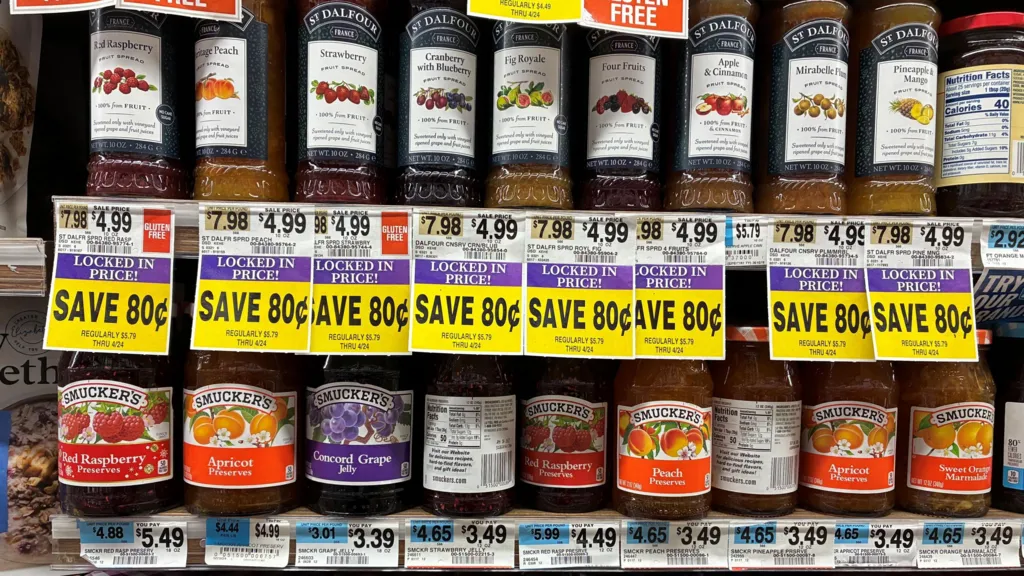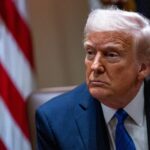
Walk through a US grocery store and you’ll find European imports like St Dalfour strawberry spread and Bonne Maman preserves—part of Europe’s $200 million annual jam exports to America. Yet American-made jellies remain virtually nonexistent in Europe, with US exports to the bloc totaling less than $300,000 yearly.
JM Smucker, a major US producer, blames this imbalance on the EU’s 24%-plus import tax on American fruit spreads. In a recent letter to the White House, the company urged the Trump administration to address this disparity as it prepares “reciprocal” tariffs against major trading partners.
“The miniscule value of US exports to the European Union is entirely attributable to the high EU tariff,” Smucker argued, noting that US jam tariffs max out at just 4.5%. “Reciprocal US tariffs on EU jams and jellies would serve to level the playing field.”
While Trump’s tariff strategy has sparked international concern and economic warnings, it has also channeled longstanding frustrations from US businesses about foreign competition and overseas policies.
Hundreds of companies have submitted letters to influence the next round of tariffs, expected April 2. Apple farmers highlighted import duties their fruit faces in India (50%), Thailand (40%), and Brazil (10%). Streaming businesses pointed to digital taxes in Canada and Turkey they claim discriminate against US companies. The oil and gas lobby criticized Mexican regulations requiring partnership with state-owned companies.
The White House itself has emphasized disparities like Brazil’s ethanol tariffs (18% versus 2.5% in US), European car tariffs (10% versus 2.5%), and India’s motorcycle tariffs (formerly 100% versus 2.4%).
Trump has framed his reciprocal tariff plan as “Liberation Day,” but businesses remain uncertain about its scope and goals, particularly as he announces other duties including potentially significant tariffs on foreign automobiles and parts.
“We’re going to be nice,” Trump stated while announcing the car tariffs. “I think people will be pleasantly surprised.” India has already reduced motorcycle tariffs, apparently betting Trump’s approach is a negotiating tactic.
Analysts caution that Trump’s intentions remain unclear. “Some days it’s about revenge and equalizing things, other days it’s about lowering tariffs, and third days it’s about bringing manufacturing to the United States,” noted William Reinsch from the Center for Strategic and International Studies.
Many businesses are attempting a delicate balance—suggesting tariffs that benefit them while avoiding broader consequences. Steel manufacturer NorthStar BlueScope Steel advocated for expanded steel tariffs while requesting exemptions for materials it needs. Similarly, the Consumer Brands Association warned against “overly broad and sweeping tariffs” that could increase costs for imported ingredients unavailable domestically.
Former Commerce Secretary Wilbur Ross predicted business concerns would ease once Trump’s plans become clear, but emphasized the president sees tariffs as either revenue generators or import reducers to encourage domestic manufacturing. “He’s very committed,” Ross said. “People should have known something like this was coming because he’s been talking about it for many years.”
Republicans have largely supported Trump’s approach despite market selloffs and weakening business confidence. Representative Jodey Arrington acknowledged potential “pain on the front end” but maintained Trump’s strategy would ultimately benefit constituents. “It’s un-American to not fight for our American manufacturers, producers and workers to simply have an even playing field,” he stated. “We’re simply attempting to reset those relationships such that we’re playing by the same set of rules. Then everyone wins.”











Be the first to leave a comment